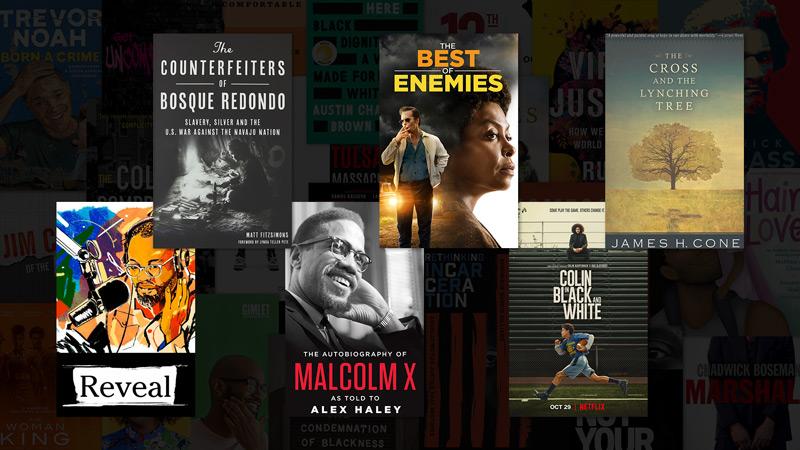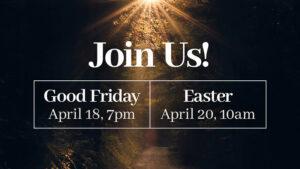For our fourth annual Learn-a-thon, you zipped by 500 hours, and as of this writing (with one week left to go!) you have reached 668 hours.
What did those 668 hours include? Your curiosity took you through gospel, hip-hop and reggae. You learned about the 1860s and the 1960s, and everything in-between. You tackled tough topics like police brutality, environmental racism, segregation in the church and the theft of indigenous land. You attended classes and exhibits and listened to speeches and audiobooks. You read graphic novels and poetry and used the world of fiction to see through someone else’s eyes. And… so much more.
We asked a few of you what you learned from this year’s Learn-a-thon, but this is just a small slice. Thanks to all of you who participated!
Rebecca: The Counterfeiters of Bosque Redondo: Slavery, Silver and the U.S. War Against the Navajo Nation (Book)
I live in New Mexico and through The Counterfeiters of Bosque Redondo by Matt Fitzsimons earned things about my state’s history that I’ve never known. I hadn’t realized that it was common practice for Mexican and American settlers in New Mexico to send out raiding parties with the express purpose of kidnapping Navajo women and children to sell as “household servants.” This treatment culminated in “The Long Walk” when the Navajo and other Indian tribes were forced to leave their home and walk hundreds of miles to be relocated, frequently dying of starvation and exhaustion or even being kidnapped into slavery along the way. It made me reflect on how authority and power can be misused in heinous ways that change the future of a people group for centuries to come. Effects of decisions made in the 1800’s still affect the Navajo nation today, just as the effects of slavery still affect African Americans in the present. It also reinforced the inherent danger of separating everyone into “us” against “them”. Dehumanizing other people groups psychologically prepares us to accept and perpetrate their victimization.
Becca: The Cross and Lynching Tree (Book)
I read The Cross and the Lynching Tree by James H. Cone after a friend gave me a list of books to go deeper into liberation theology. I cried through segments of this book, but I’m so glad I dove in (my friend encouraged me to read slowly and talk with him about it if I needed to, which I really appreciated). Cone treats history with a clarity and compassion that I found a solid guidepost, with his ultimate desire to reconcile the American church to herself. It gave me a perspective on the history of the church I was never taught, and an empathy I don’t think I could have accessed in any other way than through personal story and deep thought.
Heather: Colin in Black and White (Film)
I picked Colin in Black and White to watch because as a white couple, with an adopted daughter who is Black, I wanted to know how to support her growing into a strong Black girl, certain in herself. I’ve sought out many resources, and my takeaway from the film was that as a parent I need to be aware of microaggressions and biases towards and to be aware of ways I may make her feel less than the perfect creation she is. I would recommend this movie to anyone, especially if you view adoptive parents of Black kids as saviors (stop!). If you are adopting a transracial child, try to understand what they will feel and examine your own biases. The first time my daughter came to Woodland Hills, she came out of preschool saying, “Mama! I saw more people with melanin like me!”
Calvin: The Best of Enemies (Film)
I watched the 2019 film The Best of Enemies, the true story of how a civil rights activist and a KKK leader became friends in the South. Since I am African-American and from Mississippi it caught my eye; I recommend it because it is a true story and offers an example of the awesome and unstoppable power of love and forgiveness. My personal takeaway is how encouraging real events like this are for me. Encouragement is like food as I need it daily or at least often enough to “live” an abundant and positive life!
Clelia: Reveal: “The Double Life of a Civil Rights Icon” (Podcast)
I listened to “The Double Life of a Civil Rights Icon” on the Reveal podcast. The term “double life” always makes one curious! 😉 The episode was about Ernest Withers, the photographer who took some of the best known photographs of the Civil Rights Movement in the ‘60s. He was present at the strategy meetings of Dr. Martin Luther King, Jr. and other civil rights leaders and had their trust. His photographs of sit-ins, meetings, protests, backlashes, the sanitation workers’ strike, etc., were instrumental in the advancement of the Civil Rights Movement. Yet at the same time, he was a paid secret informant for the FBI who passed on photographs and information!
This podcast did not persuade me to think of Mr. Withers as either a hero or as a villain. He may have chosen to take that action to earn more money, or he may have felt pressured to comply with the FBI’s request to avoid certain consequences for himself or his family, but we will never know. I would recommend this podcast episode because it is important to know history.
George: Who Killed Malcolm X? (Documentary) and The Autobiography of Malcolm X (Book)
I am a strong advocate of the Woodland Hills Learn-a-thon and have been an active participant since it began. The Learn-a-thon challenges us at Woodland Hills to break out of our cultural complacency and become more familiar with aspects of racial justice we are often unaware of. This year I found The Autobiography of Malcolm X and the six-part documentary, Who Killed Malcolm X?, particularly interesting.
I work as a manager at a large federal healthcare system where I daily confront the disparities in healthcare, housing, education and social justice issues that affect the veteran population. My participation in the Learn-a-thon allows me to use my personal love of reading with my professional needs to continue life-long learning on issues affecting the American BIPOC community, such as inequality in healthcare, the criminal justice system, gun violence, housing and job opportunities, drug use and abuse, historical inequality and political power. ![]()




REVEAL:I listened to “The Double Life of a Civil Rights Icon” on the Reveal podcast. The episode was about Ernest Withers, He is best known for capturing over 60 years of African American history in the segregated South, with iconic images of the Montgomery Bus Boycott, Emmett Till, Memphis sanitation strike, Negro league baseball, and musicians including those related to Memphis blues and Memphis soul. Mr. Withers took some of the best-known photographs of the Civil Rights Movement in the ‘60s. He was present at the strategy meetings of Dr. Martin Luther King, Jr. and other civil rights leaders and had their trust. His photographs of sit-ins, meetings, protests, backlashes, the sanitation workers’ strike, etc., were instrumental in the advancement of the Civil Rights Movement. Yet at the same time, he was a paid secret informant for the FBI who passed on photographs and information! As I listened, I am convinced that Mr. Withers played a role providing exclusive photos that supported the Civil rights movement and presented the facts around the world about racism and brutality that people otherwise would have never known. I also believe that the FBI used the photos to do harm to the Civil Rights Movement/Dr. King, as well as the Black Panthers. The revelation that Withers worked as an FBI informant was met with shock and anger by many activists. I also believed he was a paid informant to the FBI but what I am not sure about is if he did this willingly or if he was forced to comply. No one but Withers himself can say for sure what his motivations were for working with the FBI – why, as a Black man who dedicated his career to documenting and celebrating Black life, he provided information that possibly put those same lives at risk. When Ernest Withers died in 2007, he took to the grave a secret that complicated his legacy as the famed photographer of Dr Martin Luther King Jr. and the secret why he was an informant for the FBI. As my Grandfather; Rev. Frank Burkhart use to say only God knows the real truth.